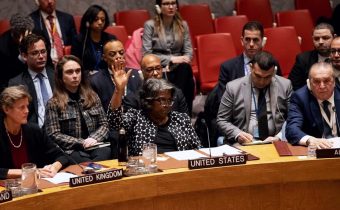LONDON: A disturbing revelation has emerged regarding China’s alleged strategy to control Uyghurs living abroad and stifle their activities in other countries, according to newsintervention.com.
According to researchers, the Chinese government is resorting to intimidation tactics, holding Uyghur families in China as “hostages” to pressure those overseas into cooperating and spying on human rights activists, the report said.
Refugees and activists who have fled China recounted their experiences to a leading news channel, shedding light on the alarming methods employed by the Chinese government, it added.
These tactics are causing significant fractures within Uyghur communities and inflicting emotional distress on families.
One poignant account involved Aleem (pseudonym), who experienced a rare connection with his mother through a video call—marking their first contact in six years since Aleem sought refuge in Britain.
However, this heartwarming encounter took a bitter turn as the call was controlled by an unidentified individual, exemplifying the constant surveillance and restricted communication faced by Uyghurs, a predominantly Muslim minority from northwest China.
Due to the sensitive nature of their interactions, a mediator facilitated the video call between Aleem and his mother. Holding two separate mobile phones in front of each other, they shared fleeting glimpses of their lives while struggling to communicate amid muffled sounds and pixelated images.
The emotional encounter took a sinister twist when Aleem received subsequent calls from a Chinese police officer. Allegedly coerced, he was instructed to attend meetings of Uyghur human rights activists, gather intelligence, and relay information to Chinese authorities. Aleem claimed he was asked to monitor anti-China protests in London and provide details about participants. Recordings of these calls were shared with the news channel, illustrating the alleged pressure tactics employed by the Chinese authorities.
Furthermore, Aleem was offered financial incentives to befriend leaders of campaign groups and socialize with them in restaurants, covertly gathering information. The Chinese officer even suggested Aleem establish a business to avoid suspicion about his sudden wealth, revealing a deeper layer of manipulation.
The threatening undertone of these interactions was unmistakable: compliance or risking harm to his family. Feeling trapped and exploited, Aleem stated, “They are using my family as a hostage. I am living in darkness.”
This coercive strategy, known as “international coercion,” involves governments monitoring and controlling their expatriates through various means.
Research conducted by Dr. David Tobin and Nerula Elema at the University of Sheffield sheds light on the extent of this practice.
Their study involving over 200 Uighur diaspora members from different countries exposes the widespread victimization of Uighurs living outside China.
Dr. Tobin emphasized the crucial role of family separation in this tactic, as fear of surveillance prevents open communication. This breakdown in family ties allows Chinese authorities to exercise control over individuals abroad by leveraging their families’ well-being. Such tactics compromise the safety and agency of Uyghurs, compelling them to comply with China’s demands.
Disturbingly, the practice extends beyond British borders. Uyghurs in Turkey, historically a sanctuary for them, are also experiencing the coercive tactics of the Chinese authorities.
Reports suggest that police from China are pressuring Uyghurs in Turkey to spy on their own communities, leading to distrust and division among the diaspora. The revelations highlight the far-reaching and insidious nature of China’s alleged suppression of Uyghur activities abroad, painting a grim picture of the lengths to which the Chinese government is willing to go to maintain control and silence dissent. (Source: newsintervention)


















